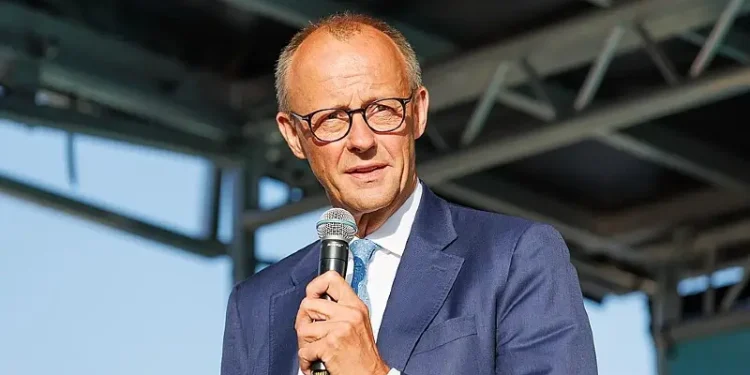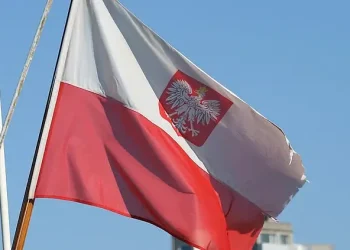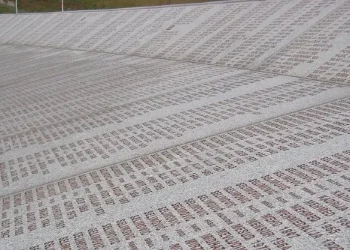Prime Minister Mark Carney met German Chancellor Friedrich Merz in Berlin this week, marking a milestone in Canada–Germany relations.
The leaders advanced their Critical Minerals Action Plan, committed to diversifying supply chains, and reaffirmed steadfast support for Ukraine. This meeting showcased Canada’s emerging role as a reliable supplier of essential resources that power defense, AI, and clean technology.
Advancing the Critical Minerals Action Plan
Canada’s $4 billion Critical Minerals Strategy, launched in 2024, underpins this new cooperation. Critical minerals—such as lithium, nickel, rare earth elements, and copper—are essential to everything from smartphones to electric vehicles and defense equipment.
Germany, facing pressure to meet EU climate targets and support its electric vehicle industry, is seeking stable suppliers beyond China and Russia. Carney emphasized Canada’s ability to stockpile and rapidly deliver these minerals, ensuring steady access for German industries.
A Data Driving the Partnership
| Area of Focus | Canadian Contribution | German Benefit |
|---|---|---|
| Lithium & Nickel | Mining projects in Ontario & Quebec | Secure EV battery inputs |
| Rare Earth Elements | Ucore & other processing initiatives | Defense and green tech resilience |
| Copper & Tungsten | Expanded exploration & refining | Industrial and military-grade materials |
| Strategic Financing | Canada’s Critical Minerals Infrastructure Fund | Shared risk reduction and investment flow |
Why Critical Minerals Matter
Critical minerals are not “rare” in the ground but in their processing capacity. At present, China controls most refining, creating supply chain chokepoints. This meeting signals a Western response—building processing plants in Canada and Europe to bypass reliance on Beijing.
The action plan ensures Canada and Germany strengthen:
-
Resource independence: reducing reliance on adversarial suppliers.
-
Industrial growth: fueling innovation in AI, renewable energy, and defense.
-
Security partnerships: aligning supply chains with NATO and allied priorities.
Energy & Trade Diversification
The Carney–Merz discussions also touched on energy diversification and trade resilience. Canada’s stable democracy and vast natural resources make it an attractive partner for Germany, which has long sought to shield its economy from energy shocks like those triggered by the war in Ukraine.
This strategy isn’t just about minerals. It’s about broadening Canada’s export footprint while supporting German manufacturers.
In practical terms, it means more Canadian minerals feeding German EV factories, ensuring production continues even when global tensions rise.
Geopolitical Security & Ukraine Support
The leaders underscored unwavering support for Ukraine, emphasizing their roles in the Coalition of the Willing. By committing critical minerals and resources, Canada strengthens NATO supply chains essential for defense manufacturing.
Both leaders reiterated the need for credible security guarantees in Europe. By aligning with U.S. and EU efforts, Canada and Germany send a clear signal of Western resolve.
Strategic Impacts
-
Defense readiness: minerals like antimony and rare earths are vital for munitions and radar.
-
AI innovation: reliable copper and lithium access supports chip and server production.
-
Human security: ensuring Ukraine receives steady military and energy support.
Tackling Infrastructure Bottlenecks
The real bottleneck lies in processing capacity, not geological scarcity. Many minerals are abundant in Canada but shipped abroad for refining. This pact prioritizes joint investments in smelters, refineries, and recycling facilities across Canada and Europe.
Joint R&D efforts will also focus on environmentally sustainable processing, ensuring that future production aligns with both ESG standards and NATO-grade requirements.
Economic & Human Impact
For Canadians, this deal means more than diplomatic headlines—it creates opportunities. Mining towns in Ontario, Quebec, and British Columbia will see growth, while German partners secure the resources they need to stay competitive.
-
Job creation: engineers, miners, AI specialists, and clean tech workers benefit directly.
-
Community development: Indigenous partners and local municipalities are included in Canada’s mineral projects.
-
Stability: supply chain diversification supports lower inflation and steadier prices for goods from smartphones to EVs.
Local and Global Significance
This agreement is more than a handshake in Berlin—it’s about future-proofing Western economies. Just as Canadian hockey teams plan several plays ahead, Ottawa and Berlin are positioning themselves to outpace global competitors in tech and defense.
The pact also strengthens transatlantic ties, ensuring that Canada is not just a “hewer of wood and drawer of water,” but a strategic partner in 21st-century innovation and security.
To Conclude
The Berlin meeting between Prime Minister Carney and Chancellor Merz represents a turning point. By committing to critical mineral development, trade diversification, and Ukraine’s defense, Canada and Germany are tackling today’s crises while preparing for tomorrow’s challenges.
This partnership strengthens transatlantic supply chains, secures future technologies, and cements Canada’s role as a cornerstone of Western security and prosperity.
Sources: Government of Canada, AInvest, SFA (Oxford), Atlantic Council and German Federal Chancellery.
Prepared by Ivan Alexander Golden, Founder of THX News™, an independent news organization delivering timely insights from global official sources. Combines AI-analyzed research with human-edited accuracy and context.









